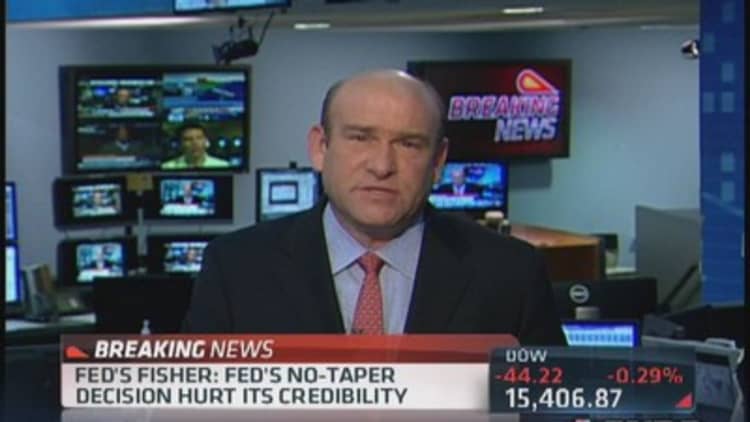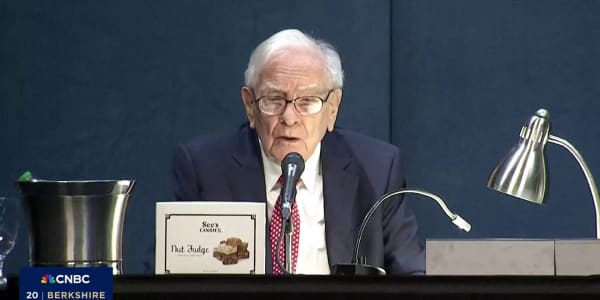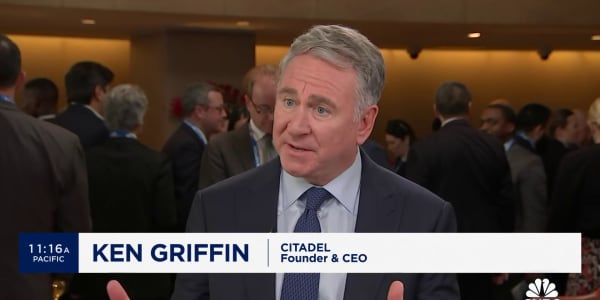Nouriel Roubini may have made his name foretelling doom and gloom, but his tone has changed enough to reflect an improbable belief in a stronger U.S. economy.
In fact, the word "crisis" or any of its synonyms was missing almost entirely from a speech the head of Roubini Global Economics delivered Monday at IndexUniverse's Inside Commodities conference.
Roubini did use the term "anemic" on multiple occasions to describe the global economic recovery.
But he maintained that the U.S. will be better positioned than most of its global competitors, leading to an appreciation in its currency, no bond market crash and only a gradual increase in interest rates.

(Read more: Fed in 'monetary roach motel': Schiff)
"The dollar is likely to become stronger rather than weaker," Roubini said. "The thing about the U.S. compared to other advanced economies...the fundamentals for the U.S. are much better."
Among the advantages he cited are growth in productivity and technology as well as continued easy money policies from the Federal Reserve, even though he expects the central bank to begin cutting back on its monthly bond-buying soon and to raise rates starting in 2015.
As for investing implications, he said he would be "overweight U.S. equities" and made a case for a stronger dollar as well.
(Read more: When your $100 bill is worth $1,000 (or more)
"The U.S. is much more advanced and has much more success than other economies. The growth in the U.S. is going to be much faster than Europe, the U.K. and Japan," Roubini said. "Gradually the dollar is going to increase in value rather than collapse the way some dollar doomsday folks believe."
On a global perspective, he did caution against banking on a strong recovery in emerging markets, reasoning that China's growth is slowing and the so-called commodity supercycle is winding down, while U.S. central bank easing, and the liquidity it provides, is going to start evaporating.
On that score, Roubini maintains a bearish view on gold, believing that it is on its way down to $1,000 an ounce as inflation, for which gold is a traditional hedge, fades as a threat.
(Read more: Despite reputation,gold is no safe haven: Gartman)
"Those worried about inflation worry about all the money printing leading to that inflation," he said. "Inflation in advanced economies is going to be the least of problems developed economies will face in the next two or three years."
_ By CNBC's Jeff Cox. Follow him @JeffCoxCNBCcom on Twitter.






